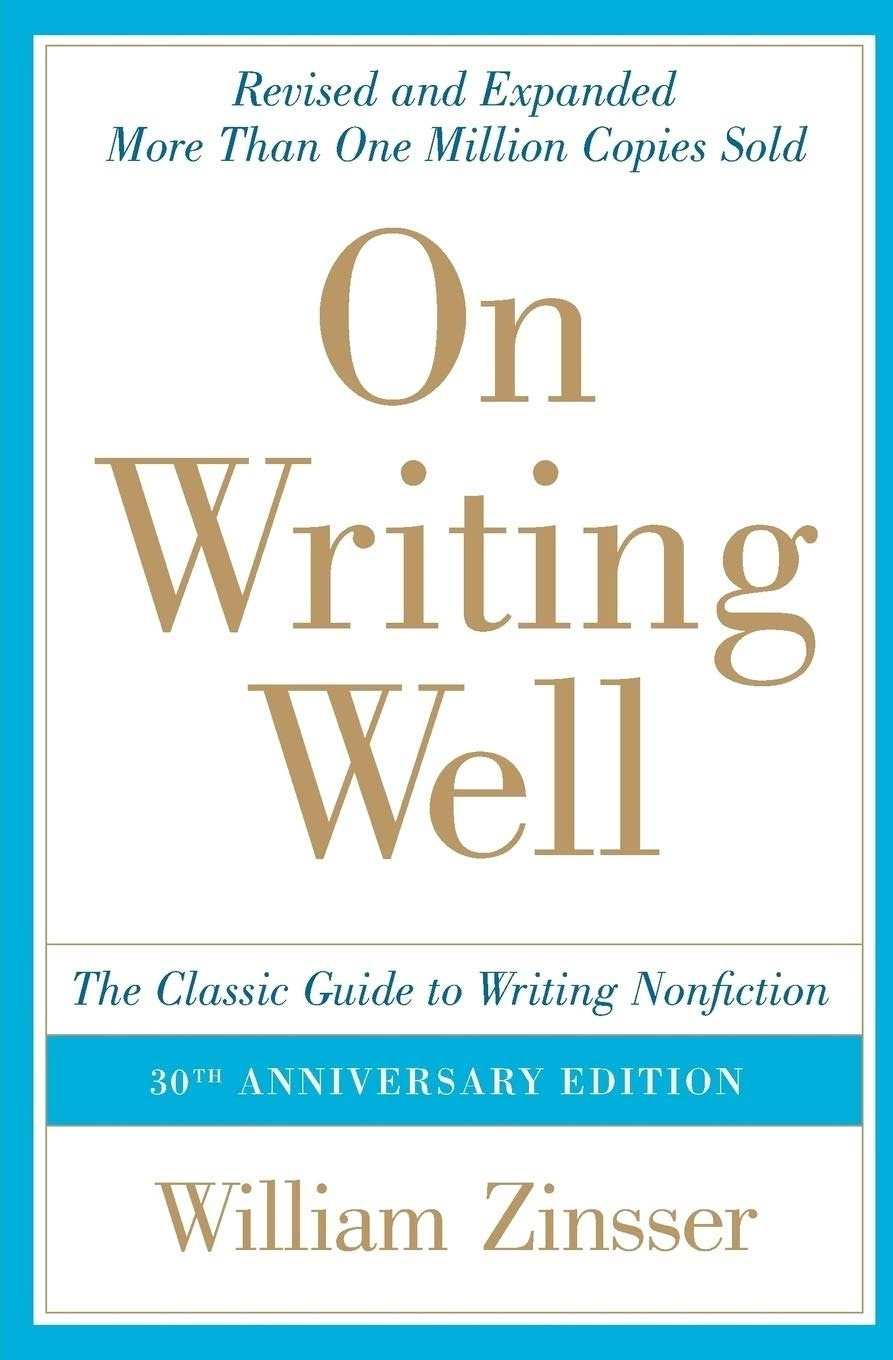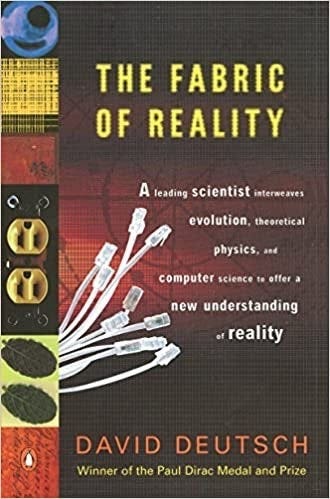Happy holidays, readers!
To close out 2020, I’d like to share my favorite books that I read this year.
I read 44 books in total - a mix of non-fiction, science fiction, and literary fiction. You can view my entire collection on my goodreads profile.
The five books I mention below are my favorites because they’ve had a profound impact on my year: I am who I am now because I read these books.
How to Take Smart Notes (Nonfiction)
# Pages: 178
Author: Sönke Ahrens
This book’s title betrays its true value. How to Take Smart Notes isn't just about note-taking, it's about learning. It dives into the Zettelkasten method, a note-taking technique designed to help you think, learn, and remember.
The final product of the Zettelkasten note-taking technique is a “slip-box,” of ideas. As you consume information, add ideas to the slip-box, and form connections between new and existing ideas, your slip-box matures along with your ideas.
This book and the Zettelkasten method has changed my approach to reading. I no longer read to read, I read to learn.
Read this book if:
You want to retain information from what you read.
You want to develop original ideas.
You want to write.
Favorite Highlights:
Studies on highly successful people have proven again and again that success is not the result of strong willpower and the ability to overcome resistance, but rather the result of smart working environments that avoid resistance in the first place (cf. Neal et al. 2012; Painter et al. 2002; Hearn et al. 1998).
Thinking takes place as much on paper as in your own head.
The idea is not to collect, but to develop ideas, arguments and discussions. Does the new information contradict, correct, support or add to what you already have (in the slip-box or on your mind)? Can you combine ideas to generate something new? What questions are triggered by them?
The slip-box is designed to present you with ideas you have already forgotten, allowing your brain to focus on thinking instead of remembering.
Developing arguments and ideas bottom-up instead of top-down is the first and most important step to opening ourselves up for insight.
...all good ideas need time. Even sudden breakthroughs are usually preceded by a long, intense process of preparation.
Note: If you use Roam Research and are interested in using it to apply the Zettelkasten method, you can read my blog post about it here.
On Writing Well (Nonfiction)
# Pages: 336
Author:William Zinsser
In this book, Zinsser makes the art of nonfiction writing seem interesting and approachable. It contains a mix of high-level guidelines and specific tactics on how to tackle different kinds of nonfiction writing.
The book convinced me to write and publish my first blog post this year. It taught me that good nonfiction writing is about the writer: you write for you and your readers read for you.
Read this book if:
You write or want to write.
You want inspiration to write.
Favorite Highlights:
Ultimately the product that any writer has to sell is not the subject being written about, but who he or she is.
...the secret of good writing is to strip every sentence to its cleanest components. Every word that serves no function, every long word that could be a short word, every adverb that carries the same meaning that’s already in the verb, every passive construction that leaves the reader unsure of who is doing what—these are the thousand and one adulterants that weaken the strength of a sentence.
Clear thinking becomes clear writing; one can’t exist without the other. It’s impossible for a muddy thinker to write good English.
Writing is hard work. A clear sentence is no accident. Very few sentences come out right the first time, or even the third time. Remember this in moments of despair. If you find that writing is hard, it’s because it is hard.
Sell yourself, and your subject will exert its own appeal. Believe in your own identity and your own opinions. Writing is an act of ego, and you might as well admit it. Use its energy to keep yourself going.
The Fabric of Reality (Nonfiction)
# Pages: 400
Author: David Deutsch
In this book, David Deutsch (Oxford physicist), attempts to describe a theory of everything. He takes well-known and accepted theories in quantum physics, epistemology, computation, and evolution, and combines them in an attempt to answer ambitious questions like: Is time travel possible? Are we living in a virtual reality simulator? Does free will exist?
The Fabric of Reality reignited my curiosity around our universe and our reality. Certain parts of the book read like sci-fi, and I recall saying “woah...” several times while reading it. Though I had trouble understanding some of the concepts mentioned in the book, its explanations of quantum mechanics and quantum computing are some of the best I’ve come across so far.
Read this book if:
You’re curious to learn more about quantum mechanics, epistemology, computation, evolution.
You’re curious about various definitions of “reality.”
You want to learn more about how a theory is constructed.
You want to go on a mind-bending adventure.
Favorite Highlights:
The purpose of high-level sciences is to enable us to understand emergent phenomena, of which the most important are, as we shall see, life, thought and computation.
Anything that seems incomprehensible is regarded by science merely as evidence that there is something we have not yet understood, be it a conjuring trick, advanced technology or a new law of physics.
We can give a definition of adaptation directly in terms of knowledge: an entity is adapted to its niche if it embodies knowledge that causes the niche to keep that knowledge in existence. Now we are getting closer to the reason why life is fundamental. Life is about the physical embodiment of knowledge… (woah...🤯)
There is no getting away from it: the future history of the universe depends on the future history of knowledge. Astrologers used to believe that cosmic events influence human affairs; science believed for centuries that neither influences the other. Now we see that human affairs influence cosmic events. (woah...🤯)
We do not experience time flowing, or passing. What we experience are differences between our present perceptions and our present memories of past perceptions.
Siddhartha (Fiction)
# Pages: 152
Author: Herman Hesse
I learned more about spirituality from this 152-page fiction than I did from The Bhagavad Gita, Tao Te Ching, and Food for the Heart. There’s just something about the hero’s journey.
The story is about a Brahmin boy who seeks enlightenment.
Siddhartha’s spiritual journey doesn’t mirror mine, which is part of the reason I found its lessons so profound; it taught me that there is no wrong path. Though our spiritual paths diverged from page 1, Siddhartha and I stumbled across similar inflection points:
Learning that my ego isn’t me, it’s just a part of me
Learning that hating my ego is counter-productive
Learning that I need attachment to understand why I don’t need attachment
..and so on.
Siddhartha is one of my top 5 favorite books from this year and one of my top 5 favorite books of all time.
Read this book if:
You’re curious about spirituality.
You’re interested in reading a hero’s journey.
You’re seeking inspiration of any kind.
You’re on a spiritual path of your own.
You want to read a classic.
Favorite Highlights:
Wisdom cannot be imparted. Wisdom that a wise man attempts to impart always sounds like foolishness to someone else ... Knowledge can be communicated, but not wisdom. One can find it, live it, do wonders through it, but one cannot communicate and teach it.
We are not going in circles, we are going upwards. The path is a spiral; we have already climbed many steps.
My real self wanders elsewhere, far away, wanders on and on invisibly and has nothing to do with my life.
I can think. I can wait. I can fast.
The Fractal Prince (Science Fiction)
# Pages: 320
Author: Hannu Rajaniemi
This book has changed the way I view reality.
The story takes place in a world where minds exist as bits and beings can interact with their stories (which are also bits). Virtual reality simulators are created and spun up with ease. Beings (as bits) can transition from one world to another as their “bodies,” undergo the necessary transformations specified by the new world. Words unlock minds, minds become words.
The concepts in this book are dark at times, but the dark plot-twists are softened by the charisma of the main character - a Han Solo-type trickster named Jean le Flambeur.
The Fractal Prince is part 2 of a 3 part series. Part 1 (The Quantum Thief) introduces the world of minds-as-software and presents a fun and fascinating plot, but part 2 really takes the concept to new heights. I would recommend reading part 1 just to read part 2. (I’m currently reading part 3, so no review on that one yet.)
Read this book if:
You’re interested in virtual reality.
You want to question your own reality.
You want to follow a fun character around a new universe.
You’re interested in software development.
Favorite Highlights:
(Don’t want to share any because it’ll give the story away.)
Conclusion: Read Fiction
I usually read nonfiction books related to productivity, leadership, or engineering. This year, for whatever reason, I found myself drawn to fiction. I grew tired of “learning,” and just wanted to be someone else and go on adventures.
I was so wrong in thinking that I couldn’t learn from fiction. Some of my deepest insights from this year were inspired by concepts I discovered in the fictional stories I read. While my favorite nonfiction books from this year taught me new strategies, my favorite fiction books showed me new universes. They’ve helped me change my beliefs.
If you could take one small big idea away from this post it’s this: read fiction.
Do you like reading book reviews from me? Let me know by replying to this email or commenting below! I’d love to hear from you.










Really enjoyed this. Thank you for sharing!
PS - where do you get your graphics from? They're baller.
I liked your reasoning: “I no longer read to read, I read to learn” ...
I enjoy it when I see authors struggle to express the inexpressible! Many years ago I picked up this book for its title: Life's Missing Instruction Manual; Joe Vitale. Sadly, I am yet to find it!
Yes, I would love to read your book reviews! It would be fantastic if you sign off with ‘your last word on the book’: does the content match the title? Thanks!